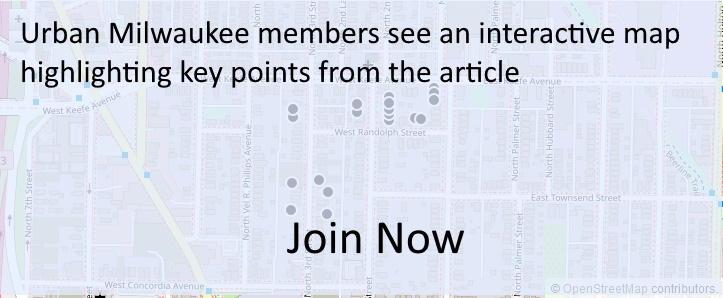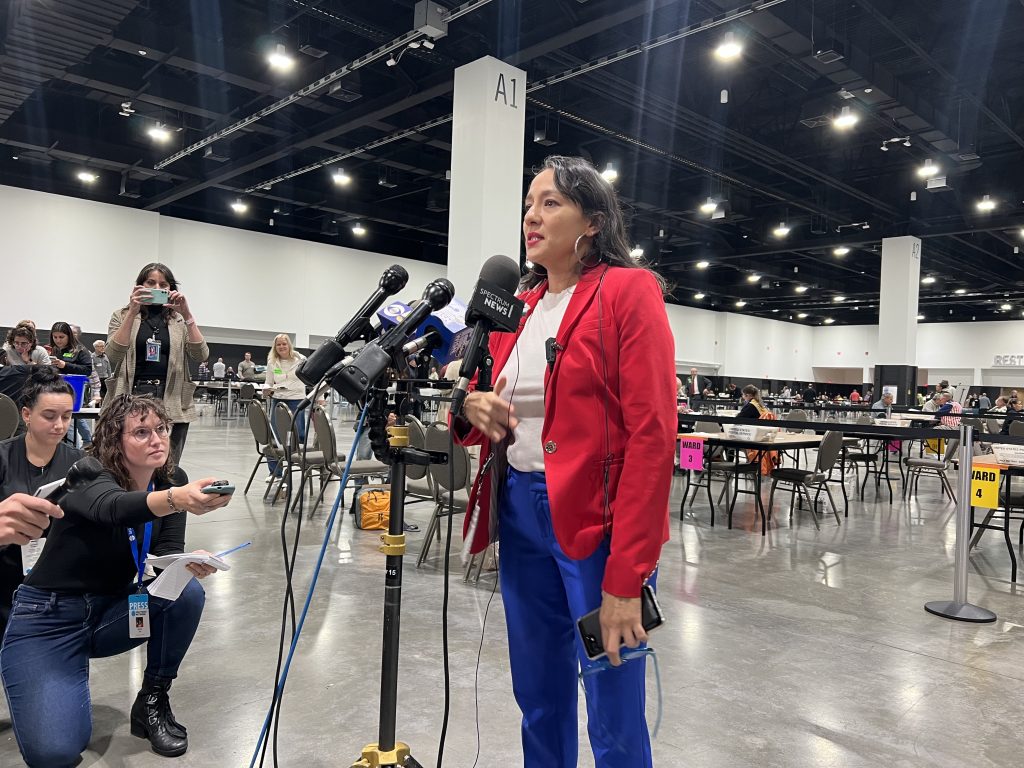After Mishap, Milwaukee To Dramatically Increase Number of Ballots It Prints
'We cannot allow our voters to experience this again'
After nine polling places completely ran out of paper ballots during the April 1 election, the Milwaukee Election Commission (MEC) is moving to drastically increase the number of ballots it orders in advance of future elections.
“Our historical data no longer serves us. It is a new normal,” said MEC executive director Paulina Gutiérrez to the Judiciary & Legislation Committee on Thursday.
In advance of spring elections, which will feature a Supreme Court contest every year through 2031, the commission will now order one paper ballot for every registered voter. That’s more than double the 45% Gutiérrez initially ordered in January for the latest election.
“On April 1, we found ourselves in a crisis because of what happened with ballots,” said deputy director Maricha Harris. The volume of calls to the election commission’s staff triage hotline spiked well beyond normal volumes in the evening, reflecting a crisis at polling places that quickly became a logistical quagmire. “We believe we received more than 1,000 calls on election day.”
A total of 69 of the city’s 180 polling places experienced ballot shortage issues. With high outside spending on the race, MEC had already ordered more ballots in March to supplement the initial 45% estimate, but it still wasn’t enough.
“The sites that were impacted the most were on the northwest side,” said Harris. Issues occurred citywide, said Gutiérrez, but they were concentrated in the part of the city that is furthest from the MEC operations center, 1901 S. Kinnickinnic Ave.
“Where our biggest challenges were with our ability to coordinate and communicate and transport resources across the city,” said Harris. The triage center at Milwaukee City Hall had only five phone lines that were overwhelmed by poll chiefs continually calling, the positions of more than two dozen couriers weren’t available on a map, and dispatchers in the triage center had to guess what couriers to send to the southside operations center and then off to a northwest side polling place.
The result was that when a call would come in for more ballots, it would take up to two hours to get the ballots to that polling place.
“One of the challenges we face is we don’t have a common operating picture,” said Gutiérrez.
One polling place, said Gutiérrez, was still waiting for voters, who were in line by the 8 p.m. cutoff, to cast their ballots until “9:30, 10 o’clock.”
Gutiérrez laid out several things MEC’s 11-person team intends to do to improve its operations, including simply writing down its processes. It intends to consolidate the operations and triage centers at the operations center warehouse, also the site of the publicly-accessible absentee-ballot processing central count operation, running a campaign to normalize the use of ExpressVote machines, used for early voting and for those with accessibility needs on election day, creating a logging system for all calls and reconfiguring the operations center.
“We will have crises in the future. What we have to do is shore up our resources at City Hall, and at our triage center and operation center. For the ballot issue, the resolution is just having the resources before election day. It’s a simple resolution we can do,” she said.
Alderwoman Milele A. Coggs pushed for more training for working, including how to communicate a crisis to voters waiting.
Gutiérrez said she would like to do more training instead of the current “minimal,” legally-compliant status. State law requires one three-hour training per election cycle for chief inspectors. “The chiefs are where the wisdom is at,” said Gutiérrez of some with decades of experience.
MEC is hosting listening sessions with its chiefs. It’s also forming a chief inspector advisory committee.
“They have been intense, they have been real, but they’ve also been so insightful and helpful,” said Gutéerrez of the internal listening sessions.
Gutiérrez said the commission does not have an estimate of how many people did not vote because of the issues, but that everyone who wanted to vote would have legally been able to vote.
Faced with questions about costs, Gutiérrez said the ballots would not be the greatest cost. MEC notifies Milwaukee County of how many ballots it wants and the county commission places an order with a private vendor. The city is also able to print its own ballots, but its equipment is slower.
“Based upon the numbers, it is not that expensive. There are other things that are more expensive,” said Gutiérrez. “We cannot allow our voters to experience this again.”

Existing members must be signed in to see the interactive map. Sign in.
If you think stories like this are important, become a member of Urban Milwaukee and help support real, independent journalism. Plus you get some cool added benefits.
City Hall
-
Council Blocked In Fight To Oversee Top City Officials
 Dec 16th, 2025 by Jeramey Jannene
Dec 16th, 2025 by Jeramey Jannene
-
Latest Effort to Adopt New Milwaukee Flag Going Nowhere
 Dec 3rd, 2025 by Jeramey Jannene
Dec 3rd, 2025 by Jeramey Jannene
-
After Deadly May Fire, Milwaukee Adds New Safety Requirements
 Dec 2nd, 2025 by Jeramey Jannene
Dec 2nd, 2025 by Jeramey Jannene























“…we found ourselves in a crisis because of what happened with ballots,” said deputy director Maricha Harris. No kidding. But its a crisis she allowed to happen because they didn’t take the time to think “what if” a lot of people showed up. Talk about poor planning.